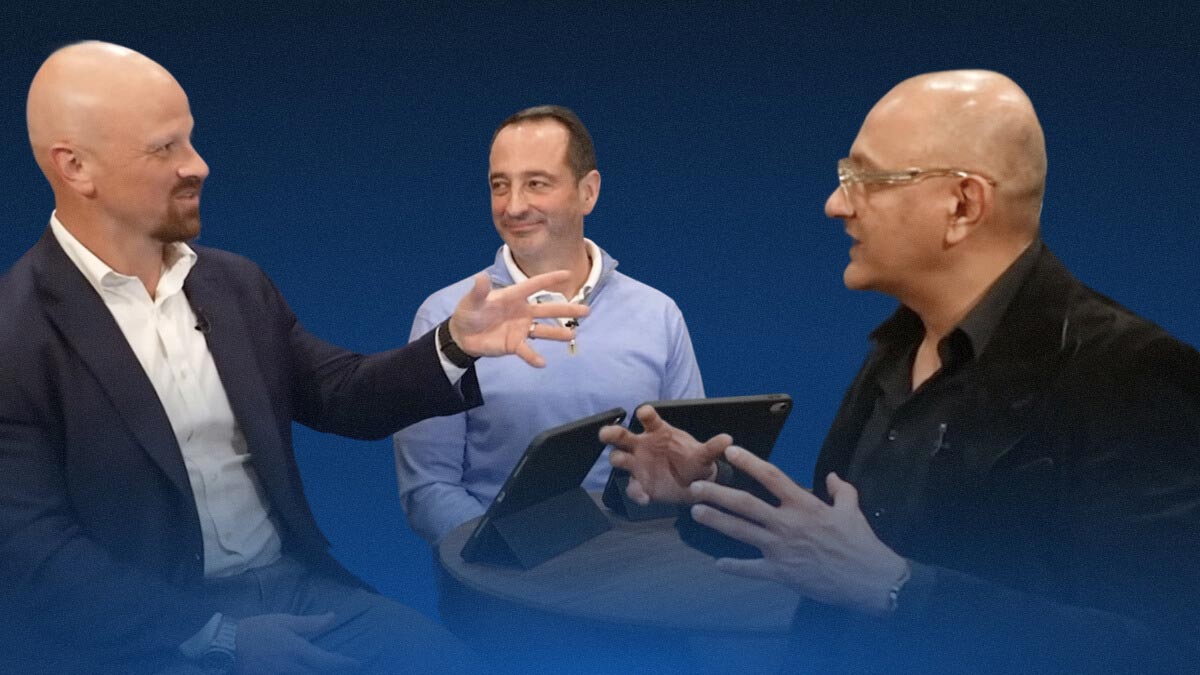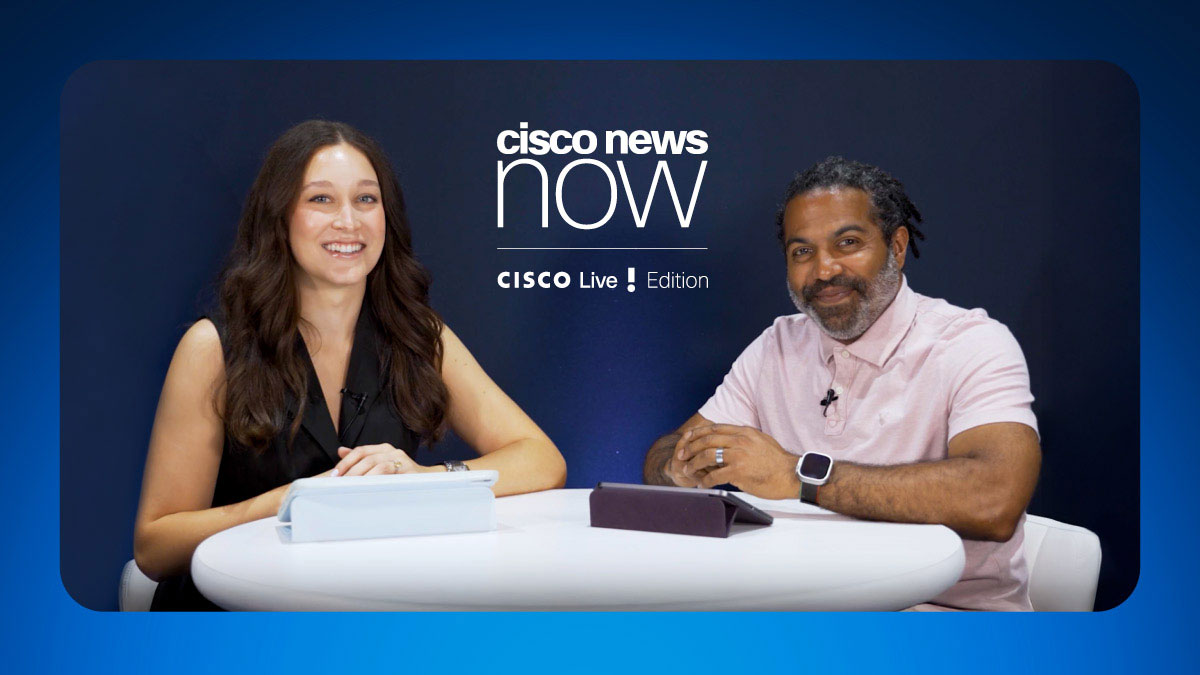SAN JOSE, Calif., June 4, 2002 - Cisco Systems, Inc. today announced an array of new Internet Protocol (IP) communications product enhancements and cost-effective voice solution packages to provide flexibility and choice for enterprise customers as they move toward a fully converged network infrastructure.
The software, hardware and packaged voice solutions announced today extend the reach of Cisco's proven IP communications portfolio. The offerings are designed to provide enterprise customers with the interoperability, scalability and flexibility required to accelerate migration toward a complete IP-based communications infrastructure today. This approach maximizes productivity and return on investment. Cisco's solutions also allow customers to take a building block approach as they move toward deploying a single, converged IP communications system with advanced productivity applications delivered directly to the user desktop. Whether customers choose a building block approach with existing voice systems and applications or an accelerated all IP-based deployment, Cisco provides a full range of established and flexible solutions.
"Companies considering the purchase of a new communications system want the assurance that they are making an investment that will last and one that will yield a positive return," said Elizabeth Ussher, vice president of convergence for the META Group. "Companies also want the flexibility to implement a converged IP communications system immediately, or migrate at their own pace, with interoperability between their new IP-based components and their current PBX systems. Packaged solutions and productivity enhancements encourage flexibility and choice for businesses of all sizes."
"To effectively manage total IT spending economics, you have to figure out a way of having new technology and your existing technology peacefully co-exist," said John McKinley, executive vice president and head of global technology and services for Merrill Lynch. "With Cisco IP telephony, we were able to accomplish that objective and this approach has provided us with a risk-managed way to embrace new technologies without effectively betting the franchise."
Addressing these specific requirements, Cisco is announcing the following new software enhancements: Cisco Unity Bridge 2.0, an option available with Cisco Unity 3.1 that is designed to provide interoperability with leading traditional voicemail systems; Cisco Customer Response Solutions (CRS) 3.0 platform delivering Integrated Contact Distribution (ICD), Interactive Voice Response (IVR) capabilities, and the IP Queue Manager; Cisco SoftPhone 1.3; and the Cisco CallManager Attendant Console.
On the hardware side, Cisco is announcing the Cisco Media Convergence Server (MCS) 7815-1000 - a cost-effective entry-level platform for IP Communications solutions that run on enterprise networks. Faster processing speed enhancements have also been made to two existing Cisco MCS platforms - the Cisco MCS 7825-1133 and the high-availability Cisco MCS 7835-1266. Cisco is also announcing two packaged voice solutions, based on the Integrated Communications System (ICS) 7750, which are targeted at smaller locations.
Increased productivity and flexibility with Cisco Unity 3.1 and Unity Bridge 2.0Cisco Unity 3.1 with Unity Bridge 2.0 increases productivity and flexibility by letting organizations like Cubist Pharmaceuticals - a pharmaceutical company focused on the research, development and commercialization of novel anti-microbial drugs - access and manage their voice and e-mail messages from one place using the device of their choice.
"We consider ourselves a cutting edge organization -- be it in research and development or empowering our employees," said Kelly Schmitz, director of Information Technology at Cubist Pharmaceuticals, a pharmaceutical company focused on the research, development and commercialization of novel anti-microbial drugs. "Our Cisco Unity unified messaging solution gives our employees greater communications control. But what's really exciting is how we can further extend our communications through Cisco Unity's open architecture - in fact, we're looking at new applications that exploit this flexibility."
Cisco Unity 3.1 scales up to 7,500 unified messaging users per Unity server with 250,000 users supported in a networked Cisco Unity environment. Migration to IP telephony is easy and cost-effective for Unity users because of the product's dual switch integration and its advanced message interoperability with leading traditional voicemail systems using Cisco Unity Bridge. Cisco Unity 3.1 gives users flexibility via its browser-based Visual Messaging Interface, which provides PC access to voicemail for all users, regardless of their groupware environment.
Improved Contact Center Flexibility with Customer Response Solutions 3.0
The Cisco CRS 3.0 is a single server platform that reduces business costs and improves customer response for small to mid-sized contact center organizations. The CRS 3.0 platform consists of the Cisco Integrated Contact Distribution (IP-ICD 3.0), the Cisco IP Interactive Voice Response (IP-IVR 3.0), and the IP Queue Manager (IP-QM 3.0). This integrated platform works together to reduce business integration complexities, simplify agent administration and increase agent flexibility and network hosting efficiencies.Capstone Turbine Corporation has been using the CRS 3.0 platform since April to improve its focus on customer service. Capstone is the world's leading microturbine power systems manufacturer. More than 2,000 of its energy cost reduction systems operate at commercial, municipal and industrial sites worldwide. "The CRS platform was extremely easy and fast to get up and running and it was cheaper and easier for us to deploy than legacy contact center solutions," said Luke Pfaffinger, Capstone's information systems manager.
"CRS 3.0 platform integrates easily with our sales, manufacturing, accounting and customer service applications," said David McShane, Capstone's vice-president of Quality Deployment and Customer Service. "It enables us to monitor call volume to optimize resources serving our customers' needs."
Cisco IP SoftPhone 1.3 and Cisco CallManager Attendant Console
For users of the Cisco IP SoftPhone 1.3, a laptop or desk computer serves as their telephone. Whenever a user connects to their corporate network or over the Internet with a VPN connection, the Cisco IP SoftPhone retains the same telephone extension number assigned to the telephone on their desk. This allows users to place or receive calls from their computer leading to increased user mobility, flexibility and productivity. Cisco IP SoftPhone 1.3 works in a converged IP network or with legacy PBX's. Enhancements to SoftPhone 1.3 include multiple sound card support, an integrated dynamic jitter buffer, and an improved graphical user interface. The Cisco CallManager Attendant Console is a cost-effective and scalable tool that replaces the traditional PBX manual attendant console. It allows a receptionist or enterprise operator to quickly and reliably answer, greet and dispatch telephone callers without operator intervention. By integrating with corporate LDAP directories, the Attendant Console delivers quick search capabilities and the ability to monitor the state of every telephone line in an enterprise system.New Cisco ICS 7750 Voice Solution Packages for Small Offices
For mid-market and enterprise branch customers, Cisco provides the ICS 7750 platform which scales to 500 users. Cisco is now offering two new packages that extend the value of the Cisco ICS 7750 to small offices with up to 50 users. The ICS 7750-AV (for analog PSTN trunking) and the ICS 7750-DV (for digital PSTN trunking) can replace legacy voice equipment today, and can be upgraded to accommodate future growth. The packages include Cisco CallManager, Cisco Unity voicemail, Cisco Auto Attendant for automated call answering and forwarding services, as well as analog station interfaces for fax, modems and analog phones.The ICS 7750 is a modular, integrated platform ideal for mid-market sites and enterprise branch offices that require integrated call processing, voice applications, voice trunking, and optional data routing in a single, remotely-managed chassis. With the ICS 7750 and Media Convergence Servers, Cisco now provides a complete, scaleable architecture that ranges from less than 50 users up to 10,000 users per Cisco CallManager cluster.



